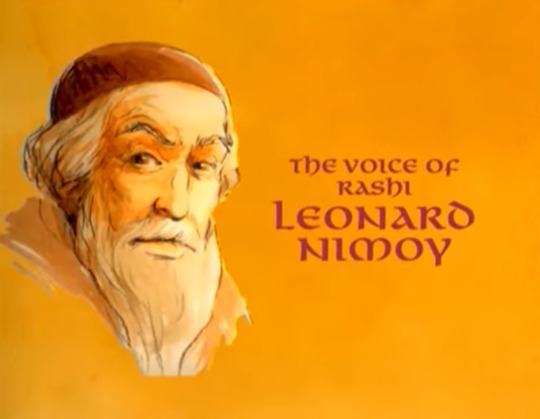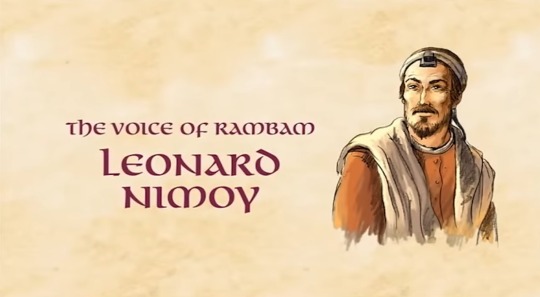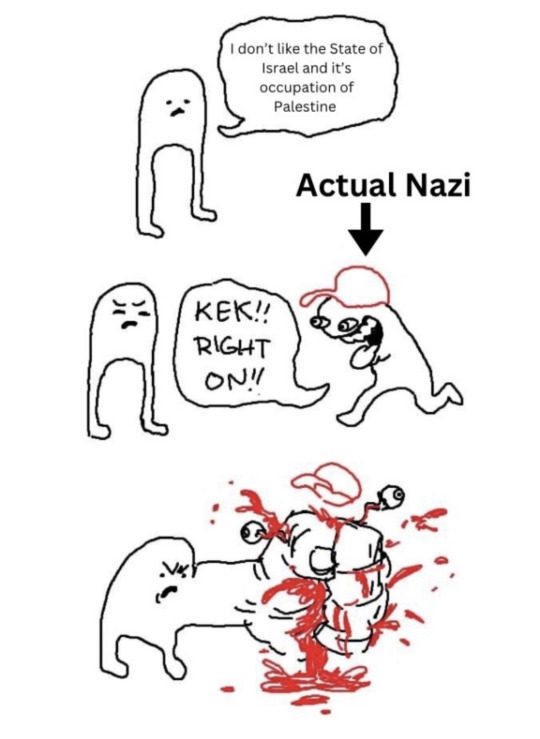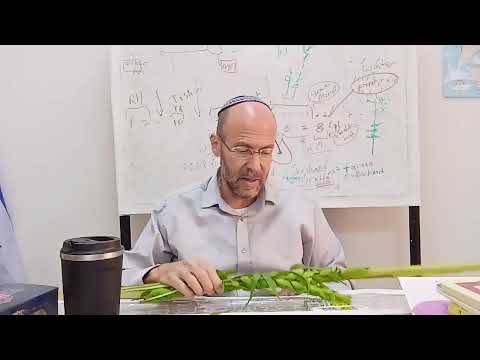#jewish learning
Text
Traditionally, there are two types of Jewish knowledge: Written Law and Oral Law.
Tanach/תנך is written law, passed down over generations through text. It has three main parts:
1. Torah/תורה: The five books of Moses, the oldest and most foundational Jewish text
2. Prophets/נביאים: Stories and prophecies about Ancient Judea
3. Writings/כתובים: Stories and poems, including the megillot (scrolls) like Esther and Ruth
Talmud/תלמוד is oral law, passed down over generations through traditions, customs, and word of mouth (though it's mostly written down now)
There is a lot of Talmud out there, here's some of the important ones:
Mishna/משנה is a commentary on the written law, in which scholars and rabbis try to interpret and apply Tanach to everyday life.
Gemara/גמרה is a commentary on the Mishna, adding a whole new layer of debate and interpretation.
Halacha/הלכה is Jewish law as a whole, and it's derived from both written and oral law. Halacha is the result of millions of Jewish people throughout history trying to make sense of Tanach and figure out how to live Jewish lives.
235 notes
·
View notes
Text
Tuesday, August 1 · 7 - 8:30pm EDT
All are welcome! If you are amazed by science, inspired by light, and find the fight for justice and equity a meaningful part of your life: you should come to this special class.
#light#judaism#science#storytelling#hebrew#jusitce#text study#torah study#jewish learning#inclusive jewish learning#inclusion#equity#justice#kindness#brightness
94 notes
·
View notes
Note
Hi there, I first wanted to thank you because I've been trying to find Jewish information on Lilith for years and it's been really hard - though I might just be bad at looking. My shul growing up never really mentioned her much so I didn't know where to even start.
I was wondering about the Jewish feminist reclaimings of Lilith that you've mentioned a few times. Sadly I haven't been able to find them myself (again probably bad at looking) but I was hoping you might be able to point me in the right direction?
The pioneer of all of this is Dr. Judith Plaskow, known as the "first Jewish feminist theologian" (she got her doctorate at Yale, go her!). Plaskow is a wonderful example of someone all for tikkun olam, and stresses the importance of Jewish women's understanding of climate change and support of movements like BLM. She's also a lesbian! **When I have time I will reblog this with sources for the first part of your question.
Her original work reclaiming Lilith appeared in "Four Centuries of Jewish Women’s Spirituality: A Sourcebook", in an essay titled "The Coming of Lilith", published 1992.
This essay later made a reappearance in her 2005 book "The Coming of Lilith: Essays on Feminism, Judaism, and Sexual Ethics", which is an important overall read in understanding her reclamation of Lilith as a whole.
The aforementioned works, however, are far from her most significant or influential, which is often said to be her book "Standing Again at Sinai: Judaism from a Feminist Perspective".
She has many other really cool works you should check out, as listed:
— Her essay in the anthology "Twice Blessed: On Being Lesbian or Gay and Jewish".
— "Goddess and God in the World: Conversations in Embodied Theology"
— "Sex, Sin, and Grace"
You should take a look at the Jewish feminist magazine inspired by her, called "Lilith".
The Jewish Women's Archive (which is a super cool source) also has a lesson plan ("Lilith Evolved: Writing Midrash") that revolves around Plaskow's look at Lilith and is a great place to start when it comes to understanding not only Lilith reclaimed, but also women's voices in Judaism as a whole. Plaskow has also authored some articles on the JWA website, and the site itself is one of the best places to learn about her.
I hope this helps! Also, these sources are for Jews ONLY. Goyim can interact respectfully and non-appropriatively. Don't make me turn off reblogs.
#askcarver#carverop#references#לילית#judaism#jewish#jumblr#demonology#midrash#feminism#jewish learning#jewish feminism#jewish women#judith plaskow
52 notes
·
View notes
Text
Bar mitzvah tutoring this evening:
Me: Okay, start by sounding out the first three words.
Student: וַיֵּרָ֤א אֵלָיו֙ ה'
Me: Awesome. That means, “God showed Godself to him"--"him" in this chapter is Avraham. But does God have, like, a body to just appear in?
Student: No?
Me: Indeed, so when we say that God showed Godself to Avraham, in a minute we’re going to see what that means.
Student: Or I could read ahead in the translation.
Me: Or you could do that. But for now, do you recognize those trop marks?
Student: Not at all.
Me: Okay, they sound like this:
[We practice singing the words until the kid masters them]
Me: Great, sound out the next two words.
Student: בְּאֵלֹנֵ֖י מַמְרֵ֑א
Me: So that’s a place name; that’s where this is happening. Do you recognize those trop marks?
Student: Yeah, I know those ones.
[We practice them, and practice combining the two phrases until he has mastered the half sentence]
Me: Nice. Let's move on.
Student: [Turns the camera to spotlight the tiny dog curled up on his bed]
Me: Oh, hello Chai, how is your little dog day going?
Student: She's having a better day than I am. I was at football before and now I'm tired.
Me: [Turns my laptop to spotlight my cat]
Student: Hi Daisy! Hi Daisy! Meow! Meow! Hi Daisy! Meow!
Me: Okay, pet break completed, moving on. So God showed Godself to Avraham at Elonei Mamre, what next? Sound out the next four words.
Student: וְה֛וּא יֹשֵׁ֥ב פֶּֽתַח־הָאֹ֖הֶל
Me: That means, he was sitting in the opening of his tent. פֶּתַח is opening, like the doorway, and אֹהֶל is tent. I know you know these trop marks so give this a try.
[We practice until he can combine this with the first half]
Me: Okay, so he’s sitting in the פֶּתַח of his אֹהֶל, finish up the sentence.
Studentכְּחֹ֥ם הַיּֽוֹם ׃
Me: "In the heat of the day." חֹם is heat, and you’ve met the word יּוֹם before, that’s day.
Student: That’s where I was before this, I was at football in the heat of the day.
Me: I was outside earlier too. There sure was some חֹם in this יּוֹם. And at this point in the story, Avraham is really old, and he’s not feeling the best he’s ever felt, but there he is, sitting in the פֶּתַח הָאֹהֶל כְּחֹם הַיּוֹם. Do you remember how the trop sounds for the end of a sentence?
Student: maybe?
[We practice it, and then practice each previous piece until the kid can sing the entire sentence on his own.]
Me: You just mastered your first full sentence of Torah!
Student: Woo.
Me: Yeah! Woohoo! Let’s keep going!
Student: So he’s just sitting in the doorway of his tent, and it’s hot. This is an exciting story.
Me: Well, we’re still in the first sentence, so think of this as the intro, we’re setting up the scene.
Student: The scene is he’s sitting in the opening of his tent.
Me: [with great drama] The camera pans slowly across the desert, bare scrub brush and dunes, and a small cluster of tents, alone in the wilderness. We pan down and zoom in on one of the tents, where Avraham is sitting in the פֶּתַח of his אֹהֶל, at the חֹם of the יּוֹם, looking around at the desert at Elonei Mamre. Sound out the next three words to get to the action.
Student: וַיִּשָּׂ֤א עֵינָיו֙ וַיַּ֔רְא
Me: So he lifted his eyes and he saw,
Student: He lifted his eyes?
Me: As in, he looked up,
Student: He looked up? I thought he was looking around at the desert. What was he, doing a Rubik’s Cube?
Me: I like that idea. Notice that the trop for these three words is the same as the first three words of the first sentence, so you can use that to remind yourself how they go.
Student: וַיֵּרָ֤א אֵלָיו֙ ה'. וַיִּשָּׂ֤א עֵינָיו֙ וַיַּ֔רְא.
[We practice those]
Me: So he looks up, what does he see? Next three words.
Student: וְהִנֵּה֙ שְׁלֹשָׁ֣ה אֲנָשִׁ֔ים,
Me: there are these three people, these three maybe-angels,
Student: WAIT, THEY’RE ANGELS?
Me: They’re about to tell Avraham a whole bunch of stuff that’s a message from God, so we can assume so.
[We practice on the trop]
Me: Okay, so there are these three people and they’re נִצָּבִים עָלָיו, they’re--.
Student: You’re not going to make me sound it out?
Me: Oh, thanks for the reminder, go ahead and sound out the next two words.
Student: Darn it. נִצָּבִ֖ים עָלָ֑יו
Me: Good, so there are these three people נִצָּבִים עָלָיו, they’re standing right there. He’s been sitting in the opening of his tent, but these people are now נִצָּבִים עָלָיו, and he looks up and he sees them.
Student: What, like, they decloaked? Like, they were there, but now they dropped their invisibility?
Me: That’s as good a theory as any for how angels work.
Student: [exasperated sigh]
Me: Try it with the trop.
6 notes
·
View notes
Text
youtube
Israel's Redemption - Rabbi Moshe Kaplan
0 notes
Text
I've said this before but it does bear repeating - I've always known antisemitism existed, of course - in a standard goy, frankly naive, "this doesn't really affect me" way. I learned about the Holocaust in school, always been pretty aware of the double standards surrounding Israel, but I was also certain I knew I wasn't antisemitic, so didn't give it much thought. Until the last few months.
I started doing a lot of reading and learning and listening to Jewish voices in the wake of my disgust at the overall leftist reaction to Oct. 7 and I have been bowled over and utterly appalled at the sheer scale and insidiousness of the way antisemitism is baked into the very foundations of Western society. As a goy I would have sworn upside down I'd never had an antisemitic thought or belief in my life. And while consciously that may certainly be true, the process of unlearning centuries of unconscious extremely prevalent prejudice is not a straightforward one and the only way to do it in good faith is listen and learn.
That's why I do not trust fellow goyim who are so adamant that they know exactly what antisemitism is and isn't and know for a fact that they aren't - because the deeply insidious nature and long, long history of antisemitism means it is almost impossible to live and grow up in Western society (obviously antisemitism exists elsewhere but as a Westerner that's the experience I'm talking to) without being influenced in some way by it.
If a Jewish person tells you you are being antisemitic, sit down, shut up, swallow your pride and your indignation, and LISTEN AND LEARN.
#antisemitism#i couldn’t be more grateful to the many jewish bloggers on this site i’ve learned from#you are amazing
1K notes
·
View notes
Text
In honor of Leonard Nimoy’s 93rd birthday, I’d like to shine a light on a couple of his lesser known roles: those of Rashi and Maimonides, two great Rabbis in Jewish history.


Nimoy hugely influenced me not only by his portrayal of Spock, but through the ways he showed the world his Judaism without fear, and with nothing but love and pride.
Happy heavenly birthday, Mr. Nimoy. May your memory be a blessing. 🖖🏻
#Leonard nimoy z’l#Leonard nimoy a’h#if you’d like to learn a bit of Jewish history I’d recommend these#leonard nimoy#rashi#maimonides#Jewish Star Trek#jumblr#jewblr#judaism#jewish#actually jewish
973 notes
·
View notes
Text


Ok, so let me explain why rebloging posts like these do little to nothing to assure Jews that they’ll be safe around you.
Goyim reblogging this stuff don’t typically listen to Jews (which is apparent because we’ve said stuff like this doesn’t actually do anything to help us many times) about their experiences with antisemitism or listen when Jews try to educate them on things like antisemitic dog whistles or blood libel. Most of them are way more enthusiastic about punching Nazis than they are about showing any compassion to Jews. I’d venture to guess the majority of Jewish people know that often the goyim who reblog this stuff are just out for blood and don’t give a damn about us, because we’ve seen this many times. Not to mention that the desire for a violent revolution that some leftists seem to have has led to Jewish people facing a lot of antisemitism (at their hands). I would bet that some of the people reblogging this act similar to Nazis themselves. I know at the very least the goyim rebloging this don’t listen to Jews because we’ve said many times that this sort of thing doesn’t really do anything to help us, and we’d much rather goyim call out and learn about antisemitism. Overall, it’s just very performative activism, and it’s pretty obvious that the goyim reblogging this are just doing it to try and make themselves look better, and not for the sake of Jews.
#I’d just much rather goyim learn about antisemitism and listen to Jews#I just so often see goyim only reblog something like this#and that’s the extent of their quote on quote activism for Jews#and it leads many of the to miss antisemitism that they perpetuate#or other people perpetrate#even though it’s emotionally exhausting work#at this point I’d be more than happy to explain antisemitic stereotypes to goyim#if they’re willing to put in the work and call out antisemitism when they see it#but I know most goyim aren’t willing to put in the work and just want to argue#tw antisemitism mention#tw Nazi mention#jumblr#Jewish#jewblr#tw blood#tw violence
789 notes
·
View notes
Text

every. damn. time.
839 notes
·
View notes
Text
This looks like something failed to upload, but it's actually a link to a pdf of my shul's "Shavuot Journal" - divrei torah by members of the congregation. Enjoy.
1 note
·
View note
Note
Hi, I’m just wondering if you have any advice for someone who wants to learn a bit more about Judaism? I’m not really at liberty to reach out to any rabbis right now, and I have no idea if I’d want to convert, but I at the very least want a better understanding of the basic beliefs and culture. If it’s not too much trouble?
The websites MyJewishLearning and JewishVirtualLibrary are great places to start, there's excellent articles there about all different aspects of Jewish life and culture, from all different perspectives.
If you want to read Jewish texts and commentaries and interpretations, go to Sefaria. Sefaria is a wonderful resource that includes translations of almost every famous Jewish text and commentary, and is constantly expanding. It also includes more recent contemporary writings and commentaries.
I'd also recommend looking into a variety of different websites run by different sects and traditions of Judaism to get a well-rounded idea of the diversity of Judaism.
reformjudaism.org - from the Reform movement perspective
reconstructingjudaism.org - from the Reconstructionist movement perspective
uscj.org - from the Conservative movement perspective
alephbeta.org - from the Orthodox and Modern Orthodox movement perspective. Has a lot of really engaging and informative videos about different aspects of Judaism.
aish.com - from the Orthodox and Modern Orthodox movement perspective
chabad.org - from the Chassidic and specifically Chabad movement perspective
jimena.org - resources about Mizrachi and Sephardi Jews, Jews in the MENA region
eshelonline.org - resources about and for LGBTQ+ Orthodox Jews
keshetonline.org - resources about and for LGBTQ Jews
smqn.org - resources about and for LGBTQ Mizrachi and Sephardi Jews.
You will find a lot of overlap between the different sects and movements, and that's because the artificial "divisions" within Judaism aren't as rigid as they are in other religions and cultures like Christianity. Many synagogues and organizations are a mix of sects and movements, because at the end of the day a Jew is a Jew is a Jew. We believe in unity above all else, and that there are Shivi'im Panim L'Torah- Seventy Faces to the Torah. That means that there are many different interpretations to the Torah and to Judaism and we celebrate that diversity of thought.
Websites to AVOID when learning about Judaism:
Any website that isn't explicitly run by and for Jews. Some websites are deceptive and use the word "Jewish" in the name, but they are not Jewish.
Hints that a website is harmful and unreliable:
-Talks about Christianity and/or Jesus immediately on the home page
-Tokenizes Jews for a political cause while not showing any receipts for actual work done to help the Jewish community
-Uses words like Messiah, Yeshua, YHWE, "Our Shepherd" frequently. (Important to note that some legitimate Jewish websites, particularly ones affiliated with the Chassidic movement, will talk about Mashiach/Moshiach a lot, but will not usually use the word "Messiah")
-Talks about "Judeo-Christian values"
-Engages in Holocaust inversion and denial
-Claims to be the only "true" Jews, Hebrews, Israelites, etc.
And finally....you don't have to want to convert to want to learn about Judaism. Most people learn about Judaism and don't convert. In Judaism we don't seek converts, most Jews will actively discourage conversion. But we welcome people who want to learn more and make a step to listen to US and not gentiles talking over us.
530 notes
·
View notes
Text
Common Jewish terms and what they mean
שלום/Shalom: Traditional Hebrew greeting. Literally means "peace" but also used for "hello"
תורה/Torah: Foundational Jewish text, mainly the five books of Moses (referred to as the Old Testament by Christians)
מצוה/Mitzvah: Good deed or commandment, laws that the Torah requires Jewish people to follow
השם/Hashem: Literally "the name", how some Jewish people refer to God
רבי/Rabbi: Spiritual leader of the community
שבּת/Shabbat: Jewish day of rest, which falls on Saturday every week. Some Jewish people refrain from work and using electronics on Shabbat
כשר/Kosher: Jewish laws around food, such as not mixing meat and milk and not eating certain meat, like pork
ישראל/Israel: Jewish people as a whole are sometimes referred to as "the children of Israel" in the Torah
בּית כנסת/Synagogue/Temple/Shul: Place of worship where Jewish people come together to pray
31 notes
·
View notes
Text
Wednesday, August 16 · 7 - 8:30pm EDT
Sin -- from a Jewish context -- is not what you think it is. It is so much more.
#sin#misstep#oops#jewish learning#theology#torah#rosh hashanah#yom kippur#holidays#jewish holidays#judaism#jewish
11 notes
·
View notes
Text
a reminder:
- not all israelis support the IDF's violence
- not all jews support the IDF's violence
- when we criticise israel, we are supposed to be criticising the government and those who individually support the ongoing genocide in gaza
- if you are condemning every single individual in israel, you are an antisemite
- equally, if you are condemning every single individual in gaza for the october attacks, you are an islamophobe
- there is no moral justification for the deaths of 13,000 palestinian children
- there is no moral justification for the 1100+ civilians killed in the october 7th attacks
- if you assume that every jew you come across supports the ongoing actions of the israeli government, you are an antisemite
- you can support palestinian resistance without asserting that hamas are good and blameless
- if you assert that the reason for broadly pro-israel media coverage worldwide is that jews control the media, you are an antisemite
- attacking random jews online with no affiliation to the israeli government will not, shockingly, aid those in gaza
- if you wish to support gaza, there are many resources available to help you donate/protest/petition etc
Edit: some people in the tags and replies have pointed out my misuse of the term 'zionism' as well as parts of this post which implied things that I didn't intend them to. I have edited those bits so that they better reflect what I am trying (but clearly poorly wording) to say.
#feel free to add#i'm not involved in this conflict but i like to think that i can listen and learn and be empathetic as we all should be#none of these are original points but i think that they should be reiterated#many people seem to be losing sight of their morals amidst the hatred#palestine#gaza#israel#antisemitism#islamophobia#judaism#jewish#free palestine#free gaza#some of you just seem to need to remember this#mine
274 notes
·
View notes
Text
Just a little PSA: I'm deleting every reblog I have talking about Israel and Palestine.
I knew I didn't know very much about what was going on, but seeing the horrors of what was happening, I felt compelled to try and help. One way I thought I was helping was by reblogging things I thought seemed important/worth sharing as a way to spread the word.
It's since been pointed out to me that this wasn't actually helpful and was actually quite the opposite. What was actually happening, unfortunately is that I was spreading misinformation and hate. That was definitely not my intention and I want to sincerely apologize for doing so.
Until I've completed the much needed research I need to do on the subject, I'll remain quiet and on the sidelines. Reading posts by Jewish people and learning real ways to be helpful.
I am so genuinely sorry for my ignorance, and I cannot believe my actions may have contributed to getting people killed. That's not my intention and it never will be. ❤
If anyone would like to chat privately - whether to vent or whatever - please feel free! I want Jewish people (and other minorities) to feel nothing but safe talking to me/on my blog. I'm here to listen, if needed.
#israel#palestine#jews#jewish#antisemitism#apology#ignorance#trying to be helpful#good intentions bad outcome#psa#learn before you speak#research
343 notes
·
View notes
Text

Meet us through hundreds of Torah video shiurim
With personal attention and first rate teachers, our mission is to help our students develop a personal connection to their heritage
0 notes